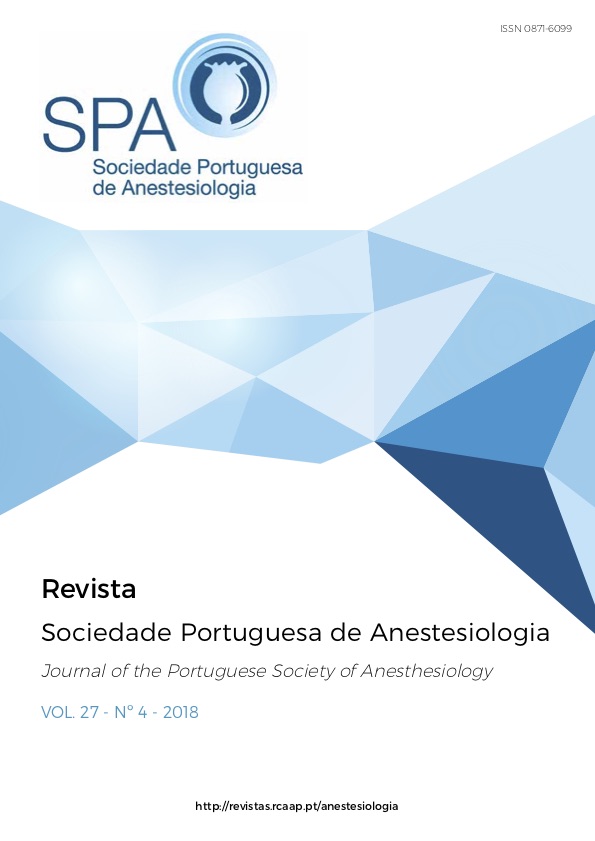Positive cuff leak test in a patient with post-extubation stridor after total thyroidectomy. How to deal with it?
DOI:
https://doi.org/10.25751/rspa.15269Abstract
Thyroid surgery (TS) is the most frequent cause of bilateral vocal cords (VC) palsy. This emergency is rare and can cause post-extubation stridor (PES) by recurrent laryngeal nerve (RLN) section.
We report a case of a patient proposed to TS. In the end of an uneventful surgery, qualitative cuff leak test (CLT) was positive. Neverthless, patient was extubated. She started PES two minutes later and was reintubated. Direct laryngoscopy demonstrated adduction of VC and, because she maintained immobility of the glottis, she was tracheostomized for six months.
Qualitative and quantitative CLT is a costless easy method that allows us to evaluate the possibility of RLN lesion prior to extubation. Very little is known about the CLT utility on TS, about its importance in high-risk patients and if extubation can be wheighted based on its result.
A CLT protocol with a datasheet were created and adapted to TS in our department.
Downloads
Downloads
Published
How to Cite
Issue
Section
License
Articles are freely available to be read, downloaded and shared from the time of publication.
The RSPA reserves the right to commercialize the article as an integral part of the journal (in the preparation of reprints, for example). The author should accompany the submission letter with a declaration of copyright transfer for commercial purposes.
Articles are published under the terms of the Creative Commons Attribution Non-Commercial License (CC BY-NC).
After publication in RSPA, authors are allowed to make their articles available in repositories of their home institutions, as long as they always mention where they were published.

